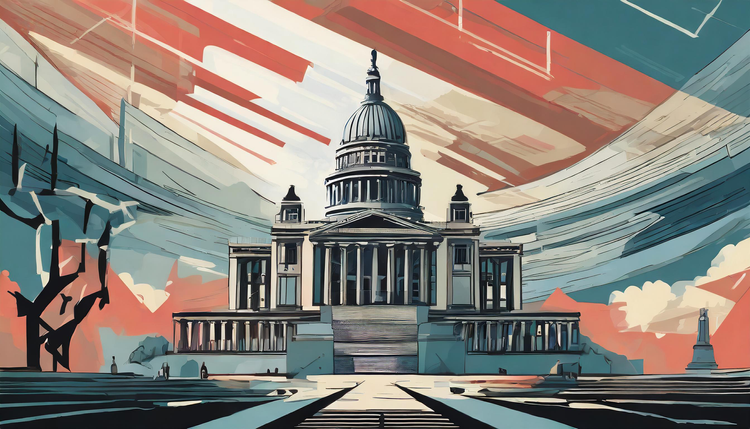The Two Forms of American Capitalism
Manhattan’s new luxury mega-project was partially bankrolled by an investor visa program called EB-5, which was meant to help poverty-stricken areas
President Obama once said, "it is important to remember that capitalism has been the greatest driver of prosperity and opportunity the world has ever seen."
This narrative is as American as apple pie.
The problem is that most Americans millennials don't believe it.
What-the-what? What's going on here?
Modern America has two forms of capitalism that unnaturally co-exist. Many people – not just those lazy millennials – hear about the virtues of one system, but see a different system day-to-day.
Let's start from the beginning.
Adam Smith, the OG, defined capitalism in deeply personal terms:
“It is not from the benevolence of the butcher, the brewer, or the baker that we expect our dinner, but from their regard to their own interest.”
Rational self-interest drives Smith's capitalism. A "free market" of rational, self-interested people create predictability and efficiency; no rational participant could, therefore, be surprised when another participant acted in her self-interest. Benevolence would be surprising.
The invisible hand of the free market works when every participant – person and organization – follows its one golden rule: act in your self-interest.
Others think about capitalism differently or, perhaps, more expansively.
Harvard defines capitalism as:
"As a political economic form it defines not only market dynamics but also governance structures, social relations, and repertoires of knowledge."
This definition of capitalism is more theoretical than Smith's.
Harvard defines capitalism as a system with a set of interpretable principles; unlike Smith's capitalism, Harvard's system does not have one golden rule.
Herein lies the central tension: many Americans were brought up to believe in the principles-based system of capitalism, but are surprised and horrified when (rational, self-interested) people follow Smith's rule.
The Hudson Yard scenario is a good example.
Business people naturally seek to solidify and extend their advantages. When calculating their rational self-interest, some of these business people don't weigh "social relations" too heavily.
Since real estate development is a highly-regulated industry, developers must navigate a complex regulatory system of permitting, reporting, zoning, and other government-mandated functions.
This complex regulatory system is high-risk, and the risk is mostly political. To derisk their work, developers provide substantial resources to the central nodes in the network: local politicians. (New York's governor, Andrew Cuomo, is notorious for receiving mega-checks from the real estate industry.)
These political investments are not, in Smith's words, from the benevolence of the developers. The Hudson Yards real estate developers – like other high-profile real estate guys – use government to serve and extend their self-interests.
On the other side of the Hudson Yards transaction is a diverse group of people with, in free market terms, limited purchasing power. They and their allies are shocked by the headline – The Hidden Horror of Hudson Yards Is How It Was Financed – that very clearly does not respect the "governance structures, social relations, and repertoires of knowledge" parts of capitalism.
In this telling, by pillaging a program focused on poverty reduction, mega-wealthy real estate developers are perpetuating the rawest form of the Matthew Effect (where the rich get richer and the poor get poorer). Local politicians, acting in their own self-interest, enable this zero-sum greed.
I think the reality is more straightforward than that: the developers are using Smith's rules, and the other side is using Harvard's rules.
This scenario brings us back to a central, unresolved question: Is American capitalism Smith-like or Harvard-like?
The answer to this question explains a lot about our times, but to get to the answer, I'd like to introduce a large amount of creative destruction into the system.





